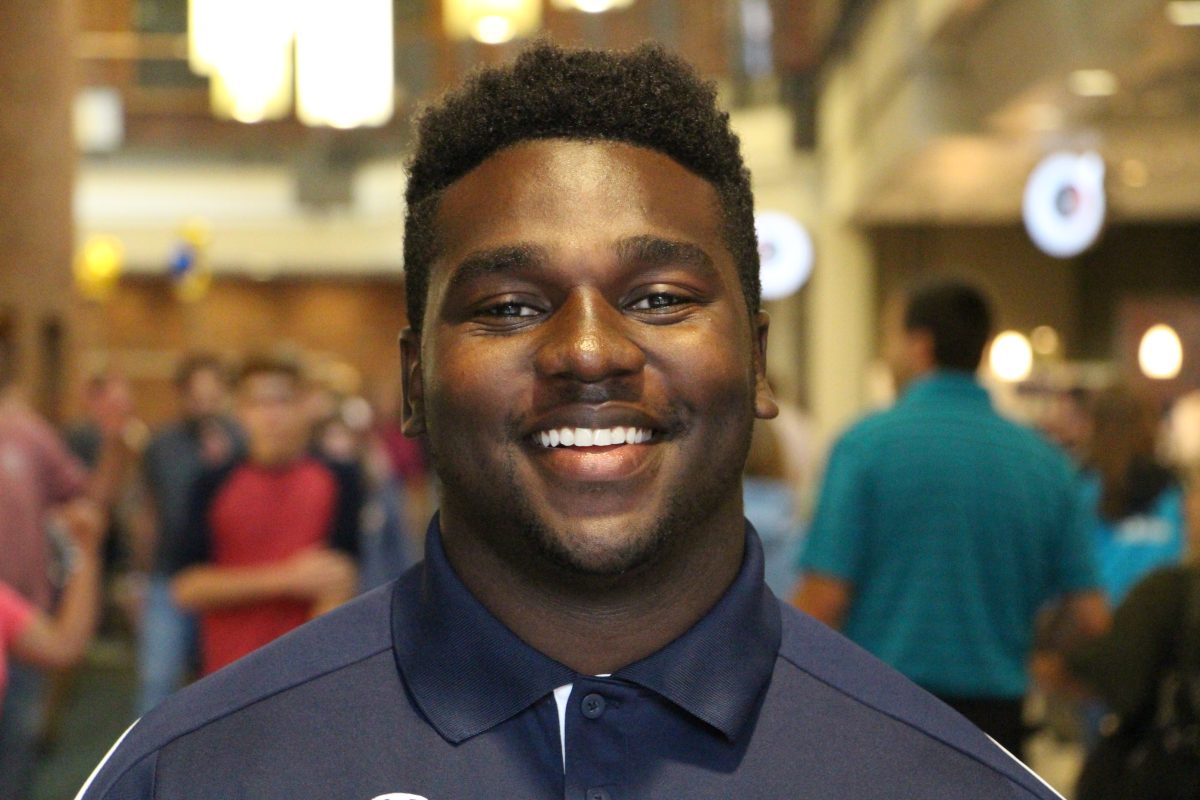How African parents express their love through actions, rather than affection.
By Godfrey Mpetey
I stared in dismay at the red and pink construction paper on my desk as I sat in Ms. McCarthy’s second grade class. My arms twined together like vines as I refused to begin my Valentine’s Day project. Our class decided to dedicate this year’s project to our parents. McCarthy realized I hadn’t made any progress and asked why.
“Because my parents hate me!” I blared as tears sprinkled upon my craft supplies below.
Years later, I walked across the wooden flooring of the recital hall in Farmington High School. The room filled with wrestling fans and families. I hugged my head coach as I grasped my All-Conference plaque. As I proudly scanned the audience of more than 100, my parents were nowhere to be found.
Maybe my parents did hate me.
My parents, Richard and Christiana, met in Ghana, a country along the coast of Western Africa. Richard was raised on a cocoa farm in Dunkwa, a small village in southern Ghana. Christiana was born in Accra, the largest city and capital. The two migrated to the United States and my parents lived in an apartment in Newark, New Jersey with three other Ghanaian families.
When my parents moved in Minneapolis, they worked relentlessly. My mom worked as a cook in a nursing home in Bloomington, waking up before sunlight, driving and beginning work before sunrise. She then came home and warmed up her fresh tilapia, pounded corn meal and hot pepper sauce, called “shito.” Her time to relax was watching Oprah, 5 Eyewitness News and The Young and the Restless all before waking up and doing her routine again.
My dad worked more than 12 hours loading luggage on flights at Northwest Airlines (now Delta Airlines). He had a distinct smell, like the Castrol motor oil he put in his rusted Toyota pickup. Outside greeting us when he came home and discussing another Vikings’ loss, my dad was quiet. The voice of David Letterman during his time on the Late Show caressed the aroma of reheated fufu with peanut butter soup as he decompressed from his turbulent day of work.
A parent’s being present is one of the greatest love languages: Mothers cheering along the stands at little league football games as fathers taking time to look over geometry problems. Mothers providing food and volunteering to chaperone field trips.
I fantasized about my parents displaying this love. Instead, I fought back and forth with my mom for a permission form signature for the field trip to the zoo. She dropped me off at the field for my first little league football game, missing my first (and only) touchdown. My dad came home, sorted through a tower of envelopes with red late notices and slept on the couch so his snoring didn’t disturb my mom.
The only times I sat down around the dinner table was while visiting a friend’s home. Our families’ dinner time was eating leftover jollof rice in my living room before my older brother, Richard Jr., rummaged through it.
African (and most immigrant) families do not have time to cheer on the stands, figure out our geometry homework and toss the football around because they are busy trying to survive in American society.
What I saw entering my white, middle-to-upper class friends and families’ home was love. It took me moving away from home and coming to Bethel to realize why I felt resentment. All along, I held them to the standard of American family values though the two differ from one another. They knew how to love each other. But what I learned is love isn’t formed in a particular way.
African (and most immigrant) families do not have time to cheer on the stands, figure out our geometry homework and toss the football around because they are busy trying to survive in American society.
My dad could have said how much I meant to him, but he was too busy working to afford my college tuition. My mom could have kissed me goodnight, but she had to pick up another shift in order to afford groceries for the weekend.
Parents show their love in different ways. Holding my parents to a standard they aren’t accustomed to unfairly sets them and myself up for failure. Instead, I find the beauty in knowing they may not say how much they love me, but their actions say it for them.
I journey home at least once a week to check in on my parents. Both are in their late 50s and continue to work towards a better place for our family. As I enter our two-story townhome, gospel music in Ghana’s native language, Twi, blasts through his Logitech speakers. My parents greet me; my dad talks about how the Vikings’ NFC Championship loss and my mom asks me how school’s going and if I have enough groceries.
I rarely leave empty handed. My mom provided Cub Foods bags loaded with groceries to feed me through the week. As I leave, she hugs me and whispers to “take care.” As I walk down the asphalt to my 2000 Toyota Camry with champagne exterior, my dad and I reach out and shake each others hands as we embrace our presence for a brief moment.
It isn’t spoken, but it is love.



















